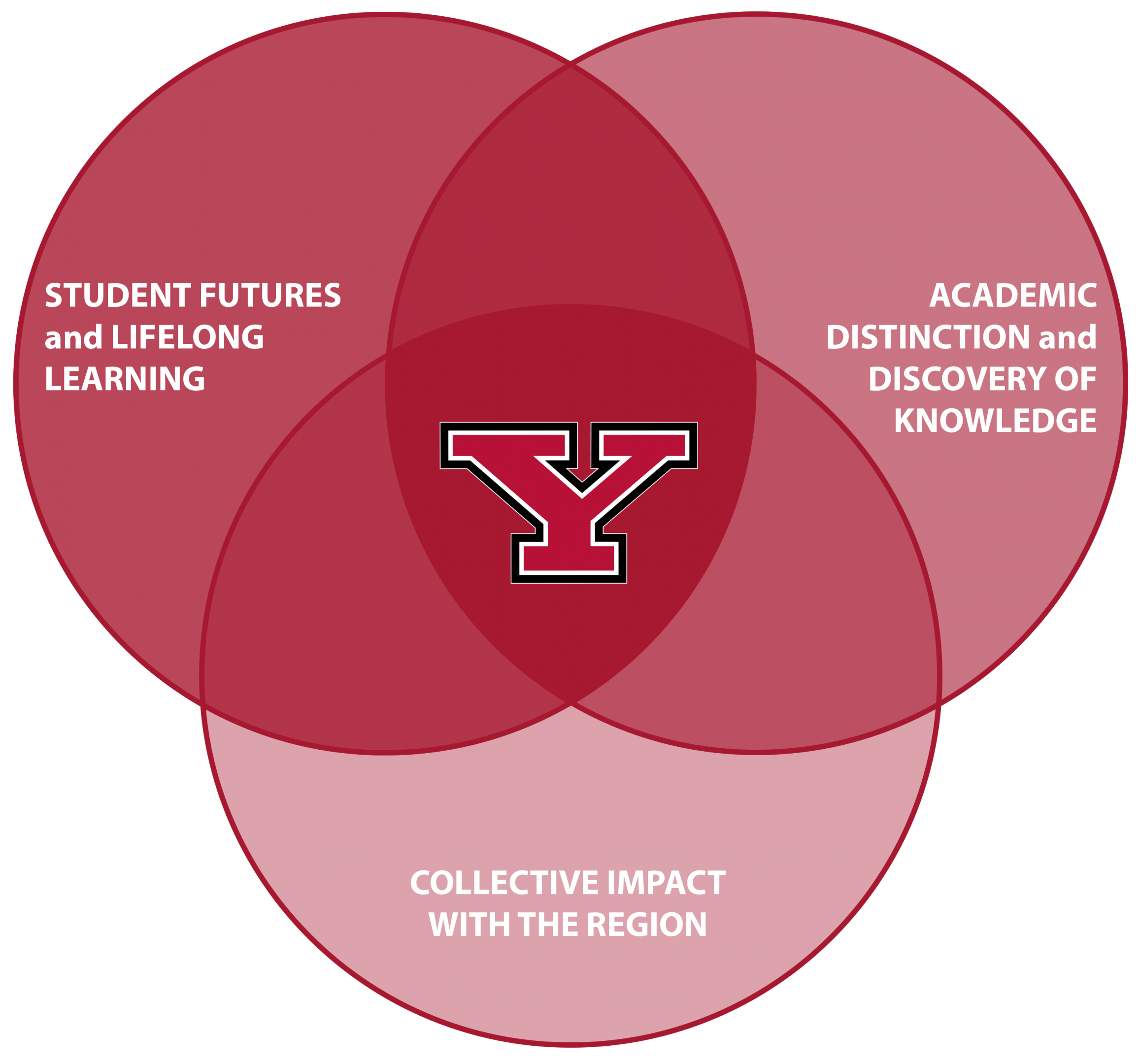The institution’s mission is clear and articulated publicly; it guides the institution’s operations.
Core Components
- 1.A. The institution’s mission is articulated publicly and operationalized throughout the institution.
- The mission was developed through a process suited to the context of the institution.
- The mission and related statements are current and reference the institution’s emphasis on the various aspects of its mission, such as instruction, scholarship, research, application of research, creative works, clinical service, public service, economic development and religious or cultural purpose.
- The mission and related statements identify the nature, scope and intended constituents of the higher education offerings and services the institution provides.
- The institution’s academic offerings, student support services and enrollment profile are consistent with its stated mission.
- The institution clearly articulates its mission through public information, such as statements of purpose, vision, values, goals, plans or institutional priorities.
- 1.B. The institution’s mission demonstrates commitment to the public good.
- The institution’s actions and decisions demonstrate that its educational role is to serve the public, not solely the institution or any superordinate entity.
- The institution’s educational responsibilities take primacy over other purposes, such as generating financial returns for investors, contributing to a related or parent organization, or supporting external interests.
- The institution engages with its external constituencies and responds to their needs as its mission and capacity allow.
- 1.C. The institution provides opportunities for civic engagement in a diverse, multicultural society and globally connected world, as appropriate within its mission and for the constituencies it serves.
- The institution encourages curricular or cocurricular activities that prepare students for informed citizenship and workplace success.
- The institution’s processes and activities demonstrate inclusive and equitable treatment of diverse populations.
- The institution fosters a climate of respect among all students, faculty, staff and administrators from a range of diverse backgrounds, ideas and perspectives.


